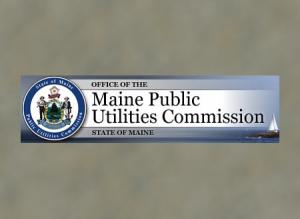Maine High Court Affirms State Commission Ruling

The Maine Supreme Judicial Court has upheld a Maine Public Utilities Commission order that endorsed a stipulation regarding energy-efficiency (EE) planning in the state. Pursuant to a bill passed in 2009 by the state legislature, responsibility for developing and coordinating both EE programs and alternative resource initiatives was vested in a new entity known as the Efficiency Maine Trust. Under the law, the Trust is charged with filing a detailed new EE plan every three years.
In chronicling the background of the Trust, the court noted that the state legislature had established the Trust to facilitate further investments in energy-efficiency measures and secure additional reductions in the cost of energy for Maine residents. To that end, the court said, the Trust is tasked with devising EE plans on a three-year cycle, part of which involves identifying maximum achievable cost-effective energy-efficiency savings (commonly referred to by the commission as "MACE"). The Trust must then propose programs through which to attain the projected MACE savings.
Upon submission by the Trust of its third triennial plan, the commission reviewed all components and determined them to be in conformance with the statute. The commission cited those sections of the law that require commission approval of a Trust plan when the commission deems it to satisfy the MACE standard. The commission then adjusted gas utility and transmission and distribution rates so as to provide revenue for procurement of the EE resources identified by the triennial plan.
But the Trust's third triennial plan for energy efficiency was challenged by the Conservation Law Foundation (CLF), which contended that the settlement adopted by the commission did not comport with the statutory mandates set forth in the Efficiency Maine Trust Act. More specifically, the CLF argued that the commission had not made use of "best practices across the region" when it calculated avoided energy costs and selected a discount rate to be used in valuing and comparing proposed EE measures.
According to the CLF, the commission failed to consider "gross efficiency savings for the purpose of determining savings that are costeffective, reliable and achievable," as required by the energy-efficiency statute. The CLF made substantially the same claims with respect to natural gas efficiency programs, alleging that the commission had neglected to clearly identify and fully fund all cost-effective, reliable, and achievable natural gas energyefficiency measures.
In upholding the commission's order, the court echoed the commission's findings that energy market conditions change regularly and can be volatile, making prices difficult to predict with any accuracy. Thus, the commission had found, it is important to consider the most current and available forecasts, particularly in times of rapid market developments.
The court concurred with the commission that no single report can lay claim to the title of the absolute best regional practice under the law. That is, the court explained, the commission had acted reasonably in relying not on any one particular set of market data, but on a variety of sources of market information, all of which had been set forth in the record.
The court stated that the data favored by the CLF would ignore recent material changes in energy prices and would overstate the benefits associated with EE investments. The court therefore held that the CLF's approach to cost/benefit analyses for the Trust's latest EE plan would not represent such a significant improvement over the commission's as to require the commission's order to be set aside. Conservation Law Foundation v. Public Utilities Commission et al., Decision 2017 ME 109, Docket PUC-16-353, June 1, 2017 (Me.)


